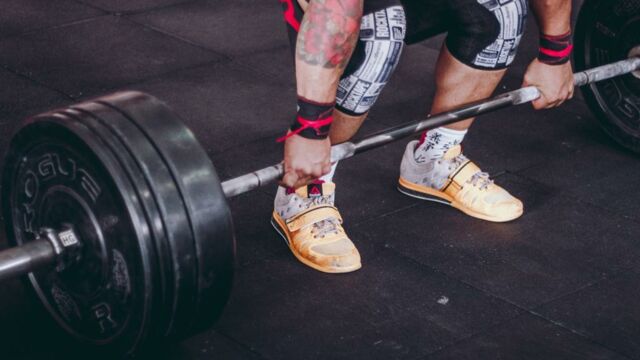This is how to build muscle on a vegetarian diet

Many misconceptions exists surrounding vegetarian diets when looking to build lean muscle. Here are some tips and tricks to make sure you are doing it right.
False are the claims that say that bulking up for some good muscle growth is nearly impossible without chicken, salmon and steak. More and more, people are adopting a sustainable lifestyle that not only helps out our planet, but also our bodies.
Discover our latest podcast
It's easier than you would think!
Vegetarianism should not be seen as something that will make muscle growth more difficult. Instead, being creative is what is actually required for a vegetarian person to upkeep their athleticism. If you are looking to build lean muscle on a strictly vegetarian diet there are many ways to achieve this goal without it having to be tedious.
More under this adMore under this adEssentially, the same rules you would apply to dieting on animal-inclusive meals can be applied to a vegetarian one as well. Protein can be found in much more than just meat: eggs, dairy, nuts and soy will be your best friends in this case.
In order to gain muscle you must intake sufficient amounts of protein to regenerate the broken down muscles after a loaded workout. As a rule of thumb for optimal results, you should be looking at consuming around 0.5 to 1.0 grams per pound. So, for someone who weighs 150 pounds they should be having at least 75-150 grams of protein per day.
More under this adMore under this adThe different types of vegetarian proteins
Now that you know how much protein you will need to ensure gains, the fun part is coming up with a meal plan that is not only nutritious but also tasty! Keeping your diet varied with different types of proteins is essential in keeping you consistent with your diet. This means, try making an all vegetable chilli with abundant beans or get inspired by South Asian cuisine that typically relies heavily on chickpeas, lentils, yogurt sauces and the like.
If you are on the lucky end of the spectrum and don't suffer from a dairy intolerance then you will be able to rack up quite a bit of protein with dairy-based products such as, greek yogurt, cottage cheese and smoothies.
More under this adMore under this adPerhaps the ultimate weapon to use when bulking up on a vegetarian diet is to take advantage of the versatility of eggs. Whether they're scrambled for breakfast, hard boiled to have as a snack, or poached in your shakshuka, these guys pack a punch. And in case cholesterol is an issue for you, you can always omit the yolk and stick to only having the whites which are the part of the egg that contain protein.
Incomplete versus complete proteins
Lastly, make sure you are eating complementary proteins in your vegetarian diet. Amino acids are vital when it comes to working out because they work hand in hand with protein to build stronger muscles. The catch with a vegetarian diet is that most vegetarian-based protein are 'incomplete proteins' because they do not contain the nine essential amino acids that the body itself cannot produce and essentially needs, as is the case with all animal-based protein.
More under this adMore under this adHowever, there are exceptions to this: quinoa, hemp, soy and chia all contain these nine essential amino acids. So, when you are having your beans and lentils make sure you pair them with other foods to make a complete protein. When pairing two or more vegetarian sources together so as to provide all nine essential amino acids it is referred to as 'eating complementary proteins.'
Some pairings that make complementary plant-based proteins are:
- Beans and rice
- Any type of nut butter and whole grain bread
- Lentil and barley
- Hummus and pita
- Oats and almonds